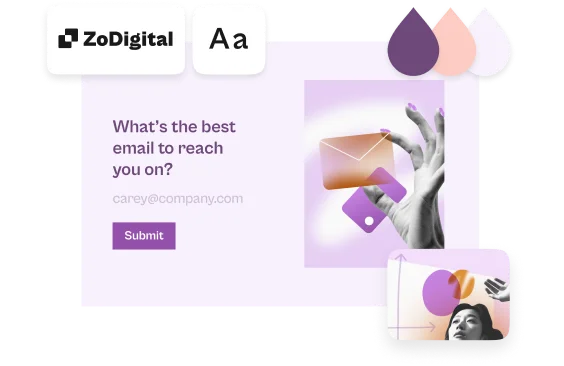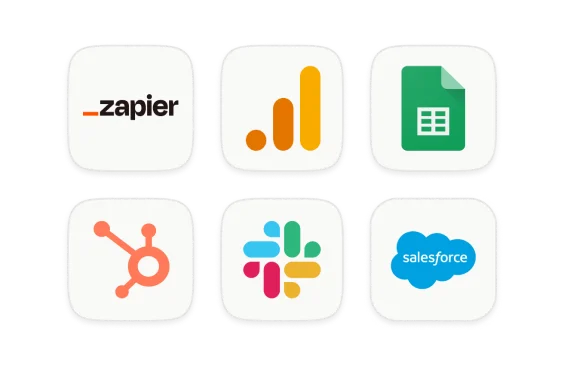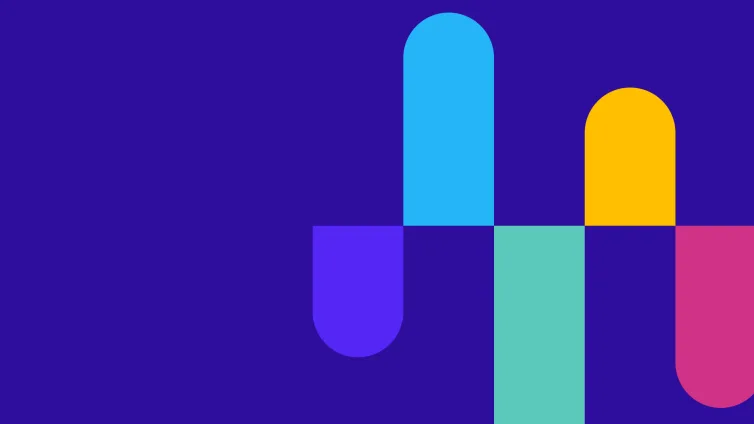- Challenge: How can a startup avoid 60-hour weeks, get their product off the ground, and reel in loads of event signups without overloading their developers?
- Solution: Over 50 typeforms that automate flows, connect their teams, and act as a Swiss Army knife whenever a new job turns up.
- Result: 1000s of event signups, multi-million dollar businesses as customers, emptier calendars, and mentally healthier workplaces.
2020 turned our bedrooms into offices and dinner tables into desks—as if work/life balance wasn’t hard enough already. A year full of lockdowns, closures, and social distancing, it’s no surprise 70% of people say they felt more anxiety and stress than ever before.
At the same time, somehow 76% of remote workers believe companies should be doing more to support the mental health of their workforce. That’s not a new problem. In fact, it’s something the team at Spill, a mental health app, experienced firsthand and have been fighting to fix.
“I'd tried to use an employee assistance program during a period of depression, but it just felt like it was designed to be difficult.”
Will is a partner at Spill, a company started by CEO Calvin Benton. Calvin saw first-hand how hard it could be for people to reach out and get mental health support, so he wanted to create a tool to help. The goal was, in Will’s words, to "make it fun, make it feel non-medical, make it as positive as you can.”
Will speaks from experience. Read how he dealt with depression here.
Calvin’s mother works as a counsellor, and his father is a clinical psychologist. So he grew up understanding how transformative therapy can be, and made it Spill’s vision to make it dramatically easier for anyone to access.
Their first product aimed to do everything through online chat, but the idea didn’t catch on like they’d hoped. “We thought making it easy meant making it accessible,” Will explains. “Some people loved it, but it never took off fully.”
Now Spill works through Slack, meaning anyone who needs (or just wants) help can video call or message a team of trained therapists.
People started listening, and now Spill is helping companies like Citymapper, Huel, Depop and us at Typeform to make the workplace feel a little more like home—not the other way around.
Here's how they moved from prototype to a feedback-driven startup.
A prototype that gets people talking
Before they could start listening, they had to get people talking. That’s when Spill introduced Typeform to the mix. Will first came across Typeform through a friend who had used it to do early customer research on a different project.
“I remember being like, ‘What is this thing? It just feels so nice.’ It felt like a website. I asked her if she had designed the page herself and she said, ‘no, it's Typeform.’ It's technically not magic, but it's pretty close.”
One of the first features Spill launched did everything over text. By keeping things anonymous and a matter of just typing a few thoughts down to a therapist, they could avoid waiting lists for therapists and having to lie down on those long chairs.
“We ran our first version of 'Ask a therapist' through Typeform.” That’s where people submit their quick questions to one of Spill’s ready-to-help therapists. “That was so important to get the ball rolling.”
“It's so quick to set up, doesn't require any dev time, and even makes a prototype product something you can be proud to test with paying users.”
Now Spill runs through Slack, offering video calls, text support, and a safe space whenever employees need a moment away. “It should make you feel fine with the fact you have feelings, not like there’s something wrong with you medically.”
Their catalog of typeforms kept growing, and now it’s their go-to tool when setting up any new processes.
“Typeform is one of the first things we consider to do the job. Because dev time is so sacred and protected, we're always looking for a no-code solution. And Typeform is one of the core parts of that solution.”
Make every event a splash
The third Monday of January is known as Blue Monday—statistically the saddest day of the year. To try remedy this in 2021, Spill organized a day of big talks and group therapy sessions open to anyone and everyone.
It was one of the first times they’d attempted an event this big. Will wanted to encourage signups and make it easy for people to attend. And they already had a tool that could help.
“I remember worrying if I needed to set up an online event page, but all I had to do was make a typeform asking for people's email addresses, link that to Zapier and then from there I could create an event in people's Google Calendar or Zoom.”
Attendees even got an automated feedback form afterwards. That information lets Will and the team know what to do better next time and how to make every event more successful than the last.
“Typeform lets our Growth, Ops, and Marketing teams get things done and doesn't take from developer time.”
Will continues: “We had around 1,200 people take part. When people are signing up for webinars and online events, Typeform makes people want to RSVP. The reason we use it in so many parts of Spill, is because we want things to feel nice, feel human, feel intuitive. It does the hard work for us.”
Here's how to make your RSVP list longer using Typeform.
18 forms of feedback for a better app
That’s right. Spill has 18 different feedback typeforms which they use to keep learning, improving, and helping. Here’s three of Will’s favorites:
Post-therapy feedback
“After each therapy session, the person receiving the help gets to fill out a feedback form. That's then sent straight to the therapist through a Slackbot.”
This is probably the most important. If there’s something Spill can do to make people feel even safer with their therapist, they do it.
User-reported bug squashing
“We even do all our bug reporting through a typeform, which goes straight to the developers.”
If someone needs help, they shouldn’t have to wait. The team at Spill makes sure errors and bugs are sent automatically to the dev team and resolved as soon as possible. You can see how it works here:
Clear and caring internal communication
"My favorite feature is User Manuals, which lets you answer questions about how you’d like other people to interact and work with you—all of the stuff people usually have to pick up over time through osmosis and guesswork."
Employees fill out a typeform which then sends a third-person description back to them through Slack. They call it a “user manual.”
For example, "Will isn't a morning person, and if you need to have a difficult conversation, make sure you call him instead of messaging."
Spill recently launched this user manual feature to some of their paying customers. Over 40% filled it out.
“We even got an article written about the feature in The Independent, a mainstream UK newspaper”
The other 15 feedback forms range from asking Spill users what types of content they would like to see more of, to opting in or out of notifications and updates.
Make your customers successful using one of these 15 Customer Success Typeform templates.
Holistic therapy requires holistic solutions
In case you couldn’t tell, Will loves experimenting. Trying new things is what led to Spill’s success. One of his favorite things to play with is how to make the entire Spill experience as seamless as possible.
“We love the embed features.” Will prefers it when people feel like they never left the Spill website. “When you embed a typeform with a background the same color as a web page, it blends so seamlessly.”
Great embed options to make typeforms appear in the right place at the right time.
This lets people like Will focus on the customer journey so developers can focus on improving Spill’s service.
“As a startup you have to move so fast. You either launch things or you die.”
Another idea he had was to take the boring legal stuff and make it readable.
“We wanted to try the Chat feature to make things more conversational. Before we do our sessions, we allow people to set up their boundaries. It lets people say what they are and are not willing to talk about and also lays out what a therapist can and cannot do.”
These things are hard enough to talk about without getting lost in heavy blocks of text. Instead they use a typeform that keeps things confidential, not condescending. It's less of a legal thing and more of an ethical thing. “Burying important information in a boring document isn't how we want to help people.”
Will and the rest of Spill set themselves a goal—to make the workplace a safe space. And as the world transitions to a more remote way of working, it's never been more important to give people a place they feel like they can disconnect.
What next?
Find out how we're using Typeform internally to help us cope with the impact of Covid on our business.
Learn how a solo-preneur saves time and builds their business using Typeform integrations.
See how BrewDog and other companies used Typeform to turn crisis into opportunity.





